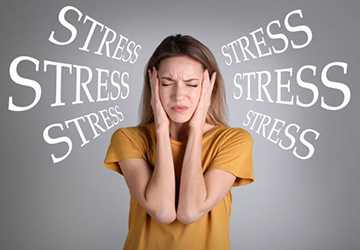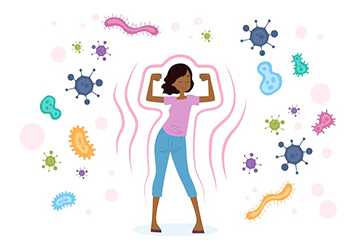Understanding and Addressing 3 Common Mental Health Challenges
Mental health is essential in today's fast-paced world. Common complications can affect a person's life and relationships. If ignored, they can reduce the quality of life and even cause despair.
However, by recognizing and addressing mental health issues, you can take the proper steps toward a happier, healthier future.

In this blog post, we examine three of the most common mental health issues and show you several realistic ways to handle them better. From treating depression to managing stress, there are ways to address your symptoms and take back control of your life for the better.
Read on to learn how to prioritize your mental health and take control. With the right tools and mindset, you can overcome these challenges and become more relevant than ever.
Why is it important to address mental health issues?
Mental health treatment can help change one's life in many ways. Some symptoms will lessen, and one's daily performance will improve.
Prioritizing mental health will significantly improve your relationships with family, friends, and work. It's lightweight and convenient, perfect for contact, communication, and socializing.
When you take control of your thoughts and minimize stress, you'll also become more confident, more resilient, and have a better sense of your goals.
When life throws a wrench in the works, you can cope and work towards your goals with determination and clear thinking. Gradually addressing mental health issues is often easier than you think.
Significant progress can be made with the proper support and strategies, and the rewards of a healthier, more balanced life can be reaped.
Understand and overcome: 3 common mental health issues
Having examined the need to address mental health issues, we now turn to three of the most common conditions and practical coping strategies.
1. Anxiety disorders
Numerous anxiety disorders can explain these problems, the most common being generalized anxiety disorder (GAD), panic disorder, and social anxiety disorder, which cause unnecessary worry, anxious feelings, and physical symptoms such as a racing heart and sweating.
These can affect life functioning and relationships. Learn relaxation techniques such as deep breathing and meditation to relieve anxiety. They can be used to clear the mind and relax the body in moments of extreme stress.
Regular exercise such as walking or yoga can reduce stress and improve mood. It can also increase the production of endorphins, a natural mood-enhancing chemical.
If anxiety continues to be a problem, consult a mental health professional. A psychologist or counsellor may prescribe cognitive behavioural therapy. Sometimes, medication is needed to treat anxiety.
2. Depression
Symptoms of depression, including those of major depressive disorder and persistent depressive disorder, can cause severe and lasting damage to your quality of life and relationships.
Connecting with friends and family, while challenging, is an integral part of fighting depression.
Share some key signs:
● Persistent feelings of sadness, anxiety, or emptiness
● Loss of interest or enjoyment in activities
● Noticeable changes in appetite or sleep
● Bringing irritability.
Get support from loved ones and socialize with friends, even if that seems impossible. Stick to daily exercise and a diet that includes all food groups.
Exercising regularly and eating nutritious foods are essential to keeping your brain healthy—at least 30 minutes of physical activity most days of the week can boost mental health.
If depression persists or seems severe, contact your doctor, who may recommend treatments such as cognitive behavioural therapy or interpersonal therapy or prescribe antidepressants.
3. Stress-Related Disorders
Acute and post-traumatic stress disorders are several stress-related disorders that a person may develop after experiencing or witnessing a traumatic event. You may experience flashbacks, nightmares, or severe anxiety.

Learn and practice stress management techniques like yoga, mindfulness, or deep breathing. These activities can help you relax and process stressful thoughts and emotions.
Learn to avoid known triggers and create a safe, calm environment. Identify any high-risk situations or places that may trigger your symptoms and make a plan to deal with or avoid them.
You should consult a mental health professional who can offer cognitive processing therapy or eye movement desensitization therapy for stress-related disorders, as EMDR can be used in conjunction with reprocessing medications.
Take steps to improve your mental health today!
You don't have to wait to take care of your mental health. These strategies can help you feel better now. Can you do it now?
Join others who have already decided to change their lives. Because life is too short, and you'll regret it if you don't live it well.
When you learn to enjoy every moment of your life fully, you'll have better relationships, greater resilience, and more happiness.
Start today on your way to a healthier, happier you!
Frequently Asked Questions
Q: How do I know if I have an anxiety disorder, or am I just anxious?
A: If anxiety is persistent and excessive and affects daily life, you may have an anxiety disorder. Be sure to see a psychologist who can make an accurate diagnosis and treat your disorder accordingly.
Q: What should I do if I think I may have depression?
A: If you feel like you are experiencing symptoms of depression, reach out to a trusted friend, family member, or doctor to help you make the connections you need to get the support and care you need to break free of depression and feel better.
Q: Are there natural remedies for stress-related illnesses?
A: While stress-related disorders require professional treatment, some natural remedies, such as exercise, mindfulness, and herbal supplements, can provide additional support. However, it is always best to consult your doctor before trying new treatments.







